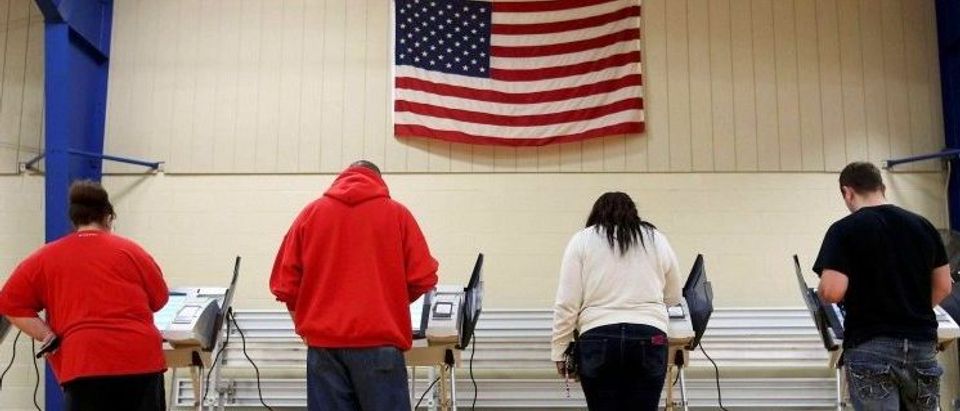A one-page Oregon House bill would punish politicians for lying on voters’ pamphlets, according to Oregon Public Broadcasting.
The penalties would be a maximum of five years in prison, $125,000 in fines, or both.
The state has taken similar action in the past to combat lying, making it illegal for politicians to falsely identify their educational and professional background. Its provisions sabotaged state Rep. Wes Cooley’s pursuit for re-election in the ’90s, who was forced to drop out after falsely claiming he served in the U.S. Special Forces in Korea.
Republican state Rep. Julie Parrish has been an outspoken proponent of the bill, HB 2430.
“I could write in my voter’s pamphlet statement that I cured cancer and when I’m not in the Legislature I am vacationing in my condo on the moon,” Parrish testified to the House Rules Committee on Tuesday.
Committee members are arguing the harassment from the media and public is a bigger blow to one’s reputation than a fine or prison sentence.
House Republican leader Mike McLane believes politicians caught in violation of the measure would deal with “such a swift rebuke in the public, that the criminal sanction, albeit legitimate, is certainly not the most pronounced in consequence.”
Under the law, politicians may face repercussions of five-year prison sentences or a $125,000 fine for “knowingly providing false information” on voter pamphlets, according to a summary of the bill.
The American Civil Liberties Union of Oregon expressed concerns in a written testimony that HB 2430 may restrict politicians of their rights under the First Amendment.
Kimberly McCullough, legislative director of the ACLU of Oregon, believes it will ultimately turn to the courts to determine whether “governmental regulation of knowingly false statements by a candidate was necessary to achieve” the goal of “protecting the integrity of its election process.”
The measure has only been introduced to the house and must be passed by the house and senate before it is signed into law.


